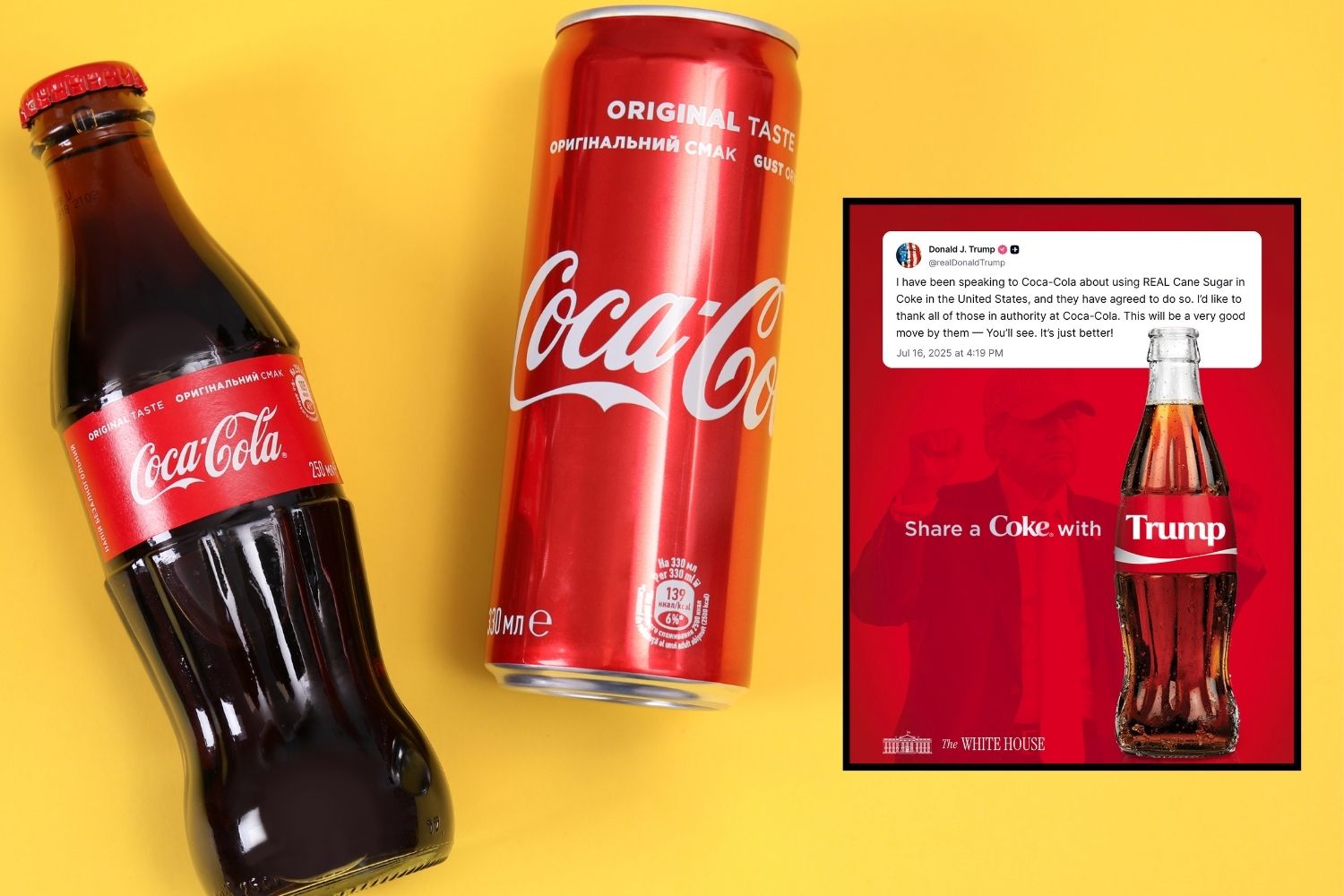Coca-Cola will launch a new U.S. version sweetened with cane sugar this fall, following Trump’s push. But the classic formula with corn syrup isn’t going anywhere.

This fall, Coca-Cola will launch a new version of its iconic soda, sweetened with cane sugar—a move that’s stirring more than just bubbles. The announcement came shortly after a social media post by former President Donald Trump, in which he claimed credit for convincing the company to replace a key ingredient in the U.S. formula.
What’s actually changing in Coca-Cola USA
During its quarterly earnings call on Tuesday, Coca-Cola confirmed that it will introduce a cane sugar-based version of its classic drink. Importantly, this new soda won’t replace the existing formula made with high-fructose corn syrup. Instead, it will join Coca-Cola’s ever-expanding lineup of options, a reflection of what the company describes as “consumer-centric innovation.”
CEO James Quincey emphasized that the aim is to “offer more choice” to meet a variety of customer preferences. He also noted that several other beverages in the company’s U.S. portfolio—like its lemonades and coffees—already use cane sugar.
As stated in the company’s report:
“As part of its ongoing innovation agenda, this fall in the United States, the company plans to launch a U.S. cane sugar offering to expand its Coca-Cola product range. This addition is designed to complement the company’s strong core portfolio and offer more choice based on occasions and preferences.”
The long-standing cane sugar vs. corn syrup debate
In the U.S., Coca-Cola has long been sweetened with high-fructose corn syrup (HFCS)—a cheaper alternative to cane sugar. That formula has been standard for decades, even as other countries, from Mexico to the UK, Australia, and Italy, use cane sugar instead. But in America, the syrup has long been a lightning rod for controversy.
Public figures like Robert F. Kennedy Jr. have voiced sharp criticism of HFCS, linking it to growing rates of obesity, diabetes, and other health conditions. Still, many health experts argue that the specific type of sugar used is less important than the total amount consumed. Whether it’s HFCS or cane sugar, excessive sugar intake is associated with significant health risks.
So, let’s be clear: a Coke made with cane sugar isn’t necessarily healthier. It’s just… different.
A backlash from the corn lobby
Not everyone is cheering. The corn industry—particularly those in the Midwest, where most U.S. corn is grown—has expressed alarm over the move. John Bode, president of the Corn Refiners Association, warned that reducing demand for corn syrup could lead to job losses and income hits for American corn farmers.
There’s also a political undercurrent here. Cane sugar production in the U.S. is largely concentrated in states like Florida, a stronghold of support for Donald Trump. So while this shift might look like a health or consumer issue on the surface, there’s a deeper layer of economic and political strategy at play.
What it means for american consumers
In practice, nothing is changing about the classic Coca-Cola formula most Americans know. The cane sugar version will be a separate product, targeted at those who want something closer to what’s offered in other parts of the world—or who simply prefer the taste of cane sugar over corn syrup.
Will U.S. consumers embrace the new option? It’s too soon to tell. Preferences run deep, especially with a brand as iconic and consistent as Coca-Cola. Some might welcome the novelty, while others stick with the familiar fizz.
Sources: Investors Coca Cola Company / CNN
Read also: Trump says Coca-Cola is changing its recipe. is it true?
